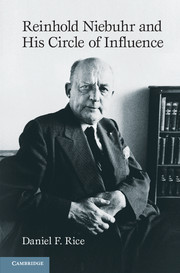Book contents
- Frontmatter
- Contents
- Acknowledgments
- Introduction
- Chapter 1 Paul Tillich (1886–1965)
- Chapter 2 John Dewey (1859–1952)
- Chapter 3 Norman Thomas (1884–1968)
- Chapter 4 Arthur Schlesinger Jr. (1917–2007)
- Chapter 5 Hans Morgenthau (1904–1980)
- Chapter 6 George Kennan (1904–2005)
- Chapter 7 Felix Frankfurter (1882–1965)
- Afterword
- Index
- References
Chapter 5 - Hans Morgenthau (1904–1980)
Published online by Cambridge University Press: 05 November 2012
- Frontmatter
- Contents
- Acknowledgments
- Introduction
- Chapter 1 Paul Tillich (1886–1965)
- Chapter 2 John Dewey (1859–1952)
- Chapter 3 Norman Thomas (1884–1968)
- Chapter 4 Arthur Schlesinger Jr. (1917–2007)
- Chapter 5 Hans Morgenthau (1904–1980)
- Chapter 6 George Kennan (1904–2005)
- Chapter 7 Felix Frankfurter (1882–1965)
- Afterword
- Index
- References
Summary
Hans Morgenthau immigrated to the United States from Germany in 1937. A major voice among political realists, he soon became the leading figure in international political theory in America in the wake of the impact of his 1948 book Politics Among Nations. Niebuhr and Morgenthau met at the University of Chicago in 1944 and rapidly developed a lasting friendship.
In 1962, Morgenthau referred to Niebuhr as “perhaps the greatest living political philosopher in America,” with Niebuhr returning the compliment in 1965 by calling Morgenthau “the most brilliant and authoritative political realist.”
The extent and direction of the influence Niebuhr and Morgenthau had on each other have been much debated. Christoph Frie’s 2001 book on Morgenthau played down any influence Niebuhr might have had on Morgenthau, contending that Morgenthau simply “used Niebuhr’s language to introduce his German intellectual heritage in an unobjectionable manner in America.” Yet the one thing underestimated by Frei is the likely effect of the new American culture – both in language and ideas – on Morgenthau as a recent émigré. It might well be that, quite aside from any direct intellectual influences, Niebuhr’s writings and friendship on occasion helped the German-speaking, German-thinking Morgenthau in entering more fully into the world of an America relatively new to him.
- Type
- Chapter
- Information
- Reinhold Niebuhr and His Circle of Influence , pp. 145 - 173Publisher: Cambridge University PressPrint publication year: 2012

